חדשות המחקר
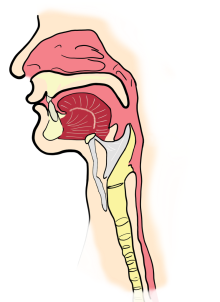
Amir Mari: Research gap in esophageal achalasia: a narrative review (Dis Esophagus . )
In recent years, new translational evidence, diagnostic techniques, and innovative therapies have shed new light on esophageal achalasia and revamped the attention on this relatively rare motility disorder. This narrative review aims to highlight the most recent progress and the areas where further research is needed.

Predictors of Short-Term Trauma Laparotomy Outcomes in an Integrated Military-Civilian Health System: A 23-Year Retrospective Cohort Study (J Clin Med .)
Trauma laparotomy (TL) remains a cornerstone of trauma care. We aimed to investigate prehospital measures associated with in-hospital mortality among casualties subsequently undergoing TLs in civilian hospitals.
(Elon Glassberg, Avi Benov)

Galin Shir, Keren Hanna: The Predictive Potential of Heart Rate Variability for Depression (Neuroscience . )
Heart rate variability (HRV),a measure of the fluctuations in the intervals between consecutive heartbeats, is an indicator of changes in the autonomic nervous system. A chronic reduction in HRV has been repeatedly linked to clinical depression. However, the chronological and mechanistic aspects of this relationship, between the neural, physiological, and psychopathological levels, remain unclear. In this review we present evidence by which changes in HRV might precede the onset of depression.
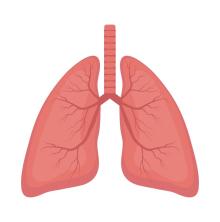
Sophia Eilat-Tsanani: Real-World Effectiveness of Single-Inhaler Triple Therapy for COPD: Impact of Diabetes Comorbidity (COPD . )
Type 2 diabetes is a frequent comorbidity in chronic obstructive pulmonary disease (COPD) patients, with the GOLD treatment recommendations asserting that the presence of diabetes be disregarded in the choice of treatment.
In a cohort of COPD patients with frequent exacerbations, initiators of single-inhaler triple therapy or dual bronchodilators were compared on the incidence of COPD exacerbation and pneumonia over one year, adjusted by propensity score weighting and stratified by type 2 diabetes.
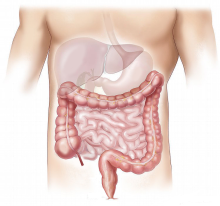
Atara Uzan-Yulzari, Sondra Turjeman, Carmel Even, Omry Koren: The crosstalk between intestinal microbiota and MDSCs fuels colitis associated cancer development (Cancer Res Commun .)
Intestinal chronic inflammation is associated with microbial dysbiosis and accumulation of various immune cells including myeloid-derived suppressor cells (MDSCs), which profoundly impact the immune microenvironment, perturb homeostasis and increase the risk to develop colitis-associated colorectal cancer (CAC). However, the specific MDSCs-dysbiotic microbiota interactions and their collective impact on CAC development remain poorly understood. In this study, using a murine model of CAC, we demonstrate that CAC-bearing mice exhibit significantly elevated levels of highly immunosuppressive MDSCs, accompanied by microbiota alterations. Both MDSCs and bacteria that infiltrate the colon tissue and developing tumors can be found in close proximity, suggesting intricate MDSC-microbiota crosstalk within the tumor microenvironment. To investigate this phenomenon, we employed antibiotic treatment to disrupt MDSC-microbiota interactions.
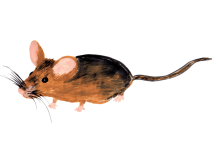
Baruh Polis, Abraham O Samson: Addressing the Discrepancies Between Animal Models and Human Alzheimer's Disease Pathology: Implications for Translational Research (J Alzheimers Dis .)
Animal models, particularly transgenic mice, are extensively used in Alzheimer's disease (AD) research to emulate key disease hallmarks, such as amyloid plaques and neurofibrillary tangles formation....This article analyzes the discrepancies between animal models and human AD pathology that complicate the translation of findings from preclinical studies to clinical applications.

Yaara Artsi: Utilizing large language models in breast cancer management: systematic review (J Cancer Res Clin Oncol . )
Despite advanced technologies in breast cancer management, challenges remain in efficiently interpreting vast clinical data for patient-specific insights. We reviewed the literature on how large language models (LLMs) such as ChatGPT might offer solutions in this field.
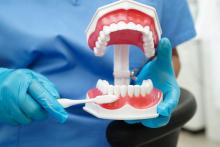
Yasmine Ghantous, Shiraz Mozalbat, Aysar Nashef, Murad Abdol-Elraziq, Shiran Sudri, Shareef Araidy, Hagar Tadmor, Imad Abu El-Naaj: EMT Dynamics in Lymph Node Metastasis of Oral Squamous Cell Carcinoma (Cancers (Basel) . )
Epithelial-mesenchymal transition (EMT) enables tumor cell invasion and metastasis. Many studies have demonstrated the critical role of EMT in lymph node metastasis in oral squamous cell carcinoma (OSCC). During EMT, epithelial cancer cells lose intercellular adhesion and apical-basal polarity and acquire mesenchymal properties such as motility and invasiveness. A significant feature of EMT is cadherin switching, involving the downregulation of E-cadherin and upregulation of N-cadherin. The TGF-β/SMAD pathway can also induce EMT. We aimed to evaluate EMT markers as predictors of lymph node metastasis in OSCC.

Liron Rozenkrantz: Poor lie detection related to an under-reliance on statistical cues and overreliance on own behaviour (Commun Psychol .)
The surge of online scams is taking a considerable financial and emotional toll. This is partially because humans are poor at detecting lies. In a series of three online experiments (Nexp1 = 102, Nexp2 = 108, Nexp3 = 100) where participants are given the opportunity to lie as well as to assess the potential lies of others, we show that poor lie detection is related to the suboptimal computations people engage in when assessing lies.

Afif Nakhleh, Naim Shehadeh: Safety and Effectiveness of Sodium-Glucose Co-transporter 2 Inhibitors on Glycemic Control in Patients with Type 2 Diabetes Mellitus Fasting during Ramadan: A Review (Clin Med Insights Endocrinol Diabetes . )
This review evaluates the current evidence on the safety and efficacy of sodium-glucose cotransporter 2 (SGLT2) inhibitors for patients with type 2 diabetes mellitus (T2DM) fasting during Ramadan.

Assisting primary care teams and patients in a culturally diverse periphery: impact on medical students' future career choices (BMC Med Educ .)
Medical students can assist in reducing healthcare disparities and promote health equity by engaging with rural communities and gaining insights into their unique healthcare needs. A two-arm student-delivered program was designed and implemented during COVID-19 in a social-geographic peripheral area to assist clinics with complex chronic and/or socially disadvantaged patients and improve preventive behavior in townships through home visits delivering community kits.
(Nosaiba Rayan-Gharra, Lilach Malatskey, Marganit Ofir-Gutler, Rizan Sakhnini, Awni Yousef, Karl Skorecki, Sivan Spitzer)
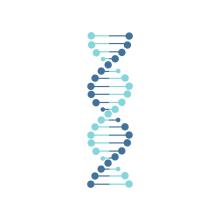
Chandrama Ghosh: G-quadruplex landscape and its regulation revealed by a new antibody capture method (Oncotarget . )
Our understanding of DNA G-quadruplexes (G4s) from in vitro studies has been complemented by genome-wide G4 landscapes from cultured cells. Conventionally, the formation of G4s is accepted to depend on G-repeats such that they form tetrads. However, genome-wide G4s characterized through high-throughput sequencing suggest that these structures form at a large number of regions with no such canonical G4-forming signatures. Many G4-binding proteins have been described with no evidence for any protein that binds to and stabilizes G4s. It remains unknown what fraction of G4s formed in human cells are protein-bound.

Yair Blumberg: Quantifying assumptions underlying peak oxygen consumption equations across the body mass spectrum (Clin Obes .)
The goal of this study is to quantify the assumptions associated with the Wasserman-Hansen (WH) and Fitness Registry and the Importance of Exercise: A National Database (FRIEND) predictive peak oxygen consumption (pVO2 ) equations across body mass index (BMI).

Mais Abu Nofal, Maysa Abboud, Aya Asla Jamhour, Waseem Said, Samah Mresat, Kamel Mattar, Raed Salim: Perinatal Outcomes of Late Preterm Rupture of Membranes With or Without Latency Antibiotics (Am J Perinatol .)
Objective: To examine whether the addition of latency antibiotics in late preterm rupture of membranes (ROM) decreases neonatal infection and increases latency.
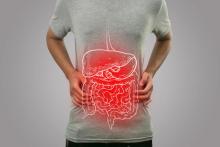
Hadar Aboody Nevo, Mohamad Hamoud, Wail Khuri, Shams-Eldin Mokary, Samih Zoabi, Nasser Sakran: Laparoscopic One Anastomosis Gastric Bypass for Class 3 Obesity in Patient with Situs Inversus Totalis (Obes Surg .)
Laparoscopic one anastomosis gastric bypass (OAGB) is gaining ground over the surgical approach for class 3 obesity due to its recognized safety and effectiveness.
Situs inversus (SI), a condition affecting approximately 0.01% of the population, is characterized by an autosomal recessive genetic anomaly leading to a mirror-image arrangement of organs and vasculature in the chest and abdomen. It is called situs inversus totalis (SIT) when accompanied by dextrocardia.
To date, only two documented cases of OAGB in patients with SIT have been reported. Notably, the primary challenge in these cases was the execution of a mirrored OAGB procedure.



